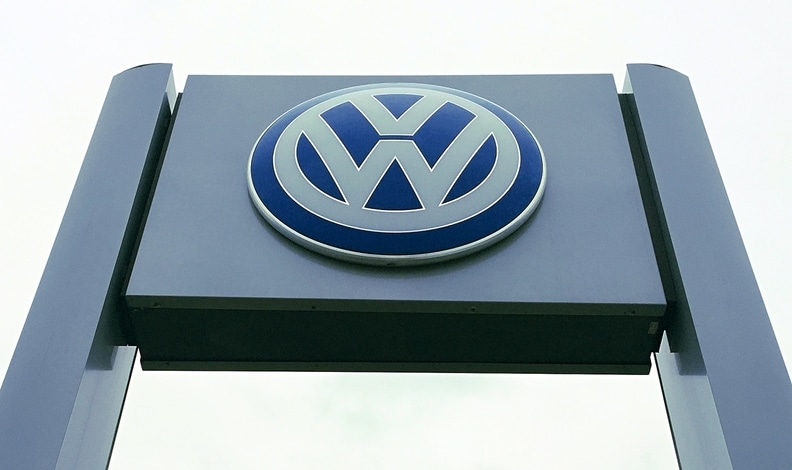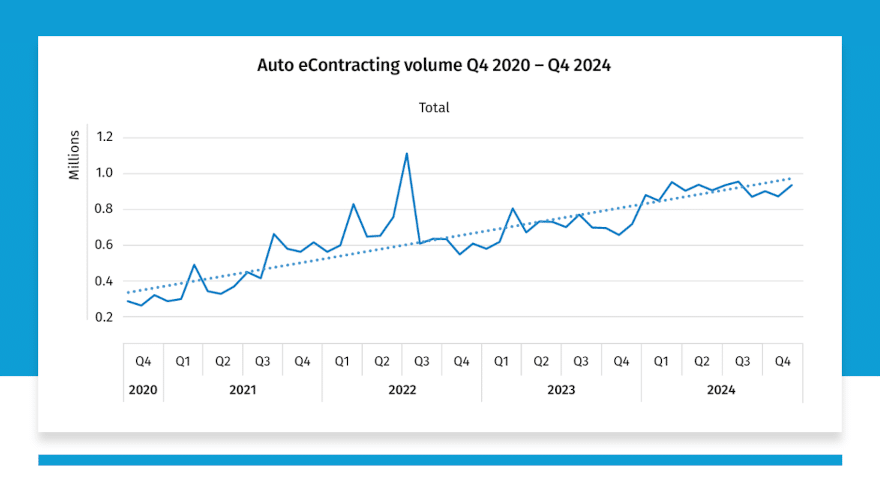From ROB BOSTELAAR (Automotive News Canada)
‘We have been following this very closely,’ says Tim Reuss, CEO of the Canadian Automobile Dealers Association
The expanding European retail model of automakers owning the cars, and dealers receiving a set commission, is making waves in Canada.
“We have been following this very closely,” said Tim Reuss, CEO of the Canadian Automobile Dealers Association (CADA).
As yet, no automakers have announced plans to adopt the so-called agency model for Canada. But if they do, they will have plenty of questions from dealers, said Reuss. For example:
- How would automakers address the lower valuations for investments dealers have made in their businesses that could stem from such a shift?
- How would the industry deal with “stranded assets” — such as dealer facilities and real estate — that might no longer be required under a different business model in which the automaker owns the inventory?
- What would it mean for other aspects of automotive retailing such as volume targets meant to reward increased sales?
- And what about used-vehicle trade-in policies that are currently determined by individual dealers, and dealer revenue streams from financing and other secondary products?
“All of those things can be worked out. But if the brand is thinking about having that, they had better be prepared to have those detailed discussions with their respective dealers in Canada,” said Reuss.
While no traditional brands have introduced the agency selling model in Canada, startup nameplates like Genesis and Polestar sell vehicles directly to consumers.
Some brands are considering a new approach in this country, according to Michael Wyant, COO of the Wyant Group, which operates 20 franchises, including Mercedes-Benz, Volvo and Audi, in Saskatchewan, Alberta and British Columbia.
“I can tell you, non-brand specific, that some manufacturers are playing with [the agency idea] in the battery-electric vehicle space,” said Wyant, who declined to name the automakers.
The brands want to know what challenges the system would pose to dealers, and whether there is consumer appetite for the change, he said In the United States, franchise laws that protect the long-standing model in which automakers wholesale vehicles to dealers, who determine retail prices, are standing in the way of any expansion of the system of the agency model.
Volvo was forced to backpedal after announcing in March that it would move to a global sales strategy of online-only, factory-set prices when it goes all-electric by 2030. The automaker later clarified that the plan would be modified to preserve dealers in North America.
Even without the U.S.-style laws, Canadian dealers would have substantial legal recourse against any attempt to unilaterally change contracts, CADA’s Reuss said.
‘REMOVES FRICTION’
CADA is providing information about the trend to its membership and particularly to dealer councils representing brands that have instituted the model elsewhere, he said.
Those include Volkswagen, which is using the agency approach for its ID3 electric car and plans to expand it to Audi electric models in Europe in 2023. BMW uses the model in South Africa, as do Honda and Toyota in New Zealand.
Daimler AG, meantime, said it will bring agency sales to markets in Europe and Australia as it moves to make its business and distribution model increasingly digital.
“This removes friction, improves the customer experience and lowers costs,” Daimler CEO Ola Kallenius told sibling publication Automotive News Europe in June. “So regardless of which sales model we contractually choose, we are on the path toward a fully digitized transaction.”
Eva Wiese, CEO of Mercedes-Benz Canada, said no plans are in the works to adopt an agency model for its dealer network in this country.
“Well, it has benefits as well as it has the opposite, Wiese said during a panel on the future of digital retailing that was part of the Automotive News Canada Congress Conversations online video series in May.
“But … it’s not our focus right now. … I don’t think we need such a model in order to have an exciting customer journey.”
While Wyant hasn’t done a “deep analysis” on the agency model, word of its implementation overseas raises concerns.
“You hear a news story about what Volvo or Mercedes are doing in Sweden or Germany, everyone in North America starts to squirm,” he said. Dealers “have significant fixed costs, and an agency model would typically erode margin in certain areas of the business. So, if an [automaker] wanted to bring that in and that eroded margin in certain areas, what would it be replaced with?”
NOT SUSTAINABLE
A December 2020 survey by the Paris-based consulting firm Capgemini found European dealers largely positive about the model and its set fees in place of the wholesale system, in which they often must sacrifice margin to meet volume incentive targets.
“The current sales model is not sustainable, and an adaption is essential to stay competitive,” the Capgemini study concluded.
According to one German media report, however, Mercedes-Benz dealers in Austria want to retain the right to set prices and believe the agency fee Daimler is offering — 5.8 per cent of the transaction price, dropping to two per cent if the car is sold online — is too low.
There’s more skepticism in North America. While automakers are linking the agency model to electric vehicles and digital retailing, Reuss said, there’s “no natural tie-in” — nor any need to change the contractual relationship to sell EVs online.
“Dealers have actually been at the forefront of a lot of things that have been happening in digital retailing,” he said.
Reuss acknowledged that the agency model could lower risk for dealers by moving inventory costs to manufacturers. However, that must be balanced against “lower opportunity for dealers because of substantially reduced margins and also [reduced] flexibility.”
Dealer Wyant said the most successful retailers could pay the biggest price in a move to agency sales.
“One of the things that makes [some] dealers great and makes other dealers not as good is how well they execute with the customer,” he said. “Losing control of that for dealers that do a great job of it would be a tough pill to swallow.”
The answer for North America, he added, could be a hybrid approach that offers “transparent” pricing and easy, digital transactions – two priorities for manufacturers – while leaving dealers in control of the sales process and able to generate returns in keeping with their investments.
Mike Smitka, an emeritus professor of economics at Washington and Lee University in Virginia, said the agency model overlooks key strengths of a network of independent retailers. Dealers know their local markets and can bring in inventory that sells while resisting automaker attempts at oversupply, Smitka said.
Even more fundamental to their value is the billions of dollars in inventory they hold, cushioning automakers from dips in the business cycle.
“A dealership is a very robust business model,” he said, “and it has stood the assemblers in very good stead.”




